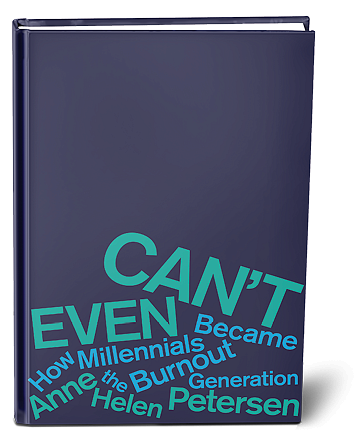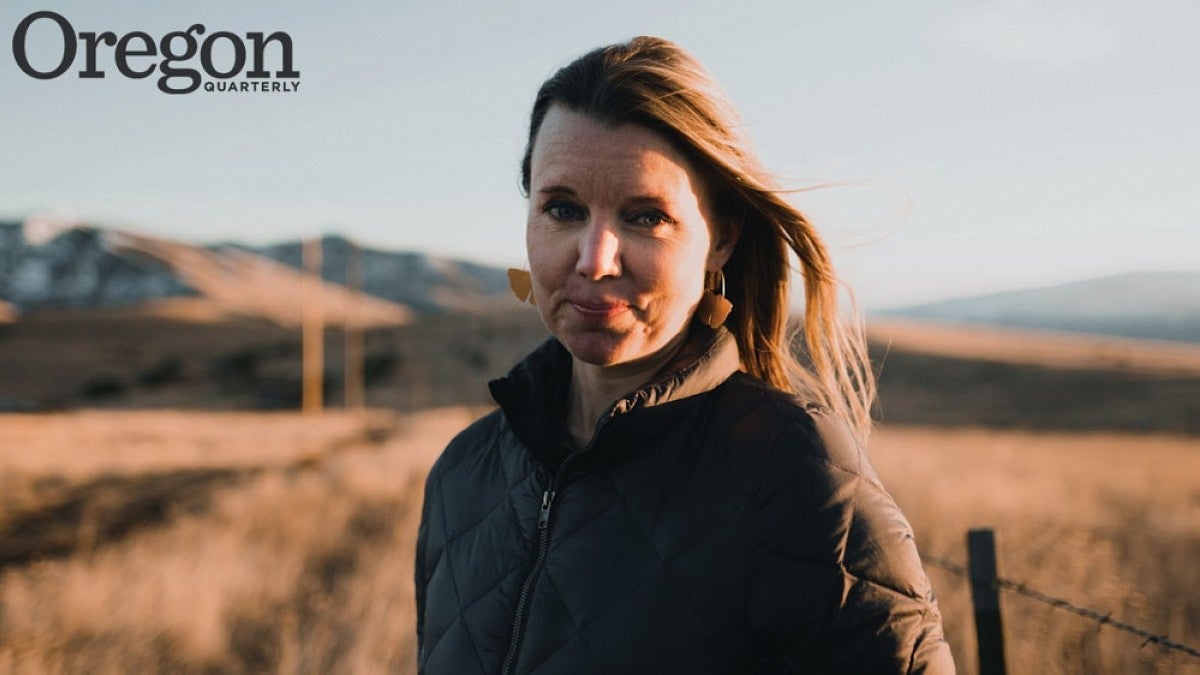Anne Helen Petersen knows a little bit about Millennials. She is one. And when her BuzzFeed article, “How Millennials Became the Burnout Generation,” went viral in 2019—surpassing seven million readers and becoming the online news platform’s most-read article of the year—she knew she’d hit a nerve.
The essay became the source of her 2020 book, Can’t Even: How Millennials Became the Burnout Generation, detailing the challenges for children born between 1981 and 1996.
Based on a nationwide survey, historic and academic research, hundreds of interviews with Millennials, and her own experiences, Petersen, MA ’07 (English), contends that despite being characterized in the media as lazy, entitled, and self-obsessed, most Millennials are, in fact, confident, ambitious, and achievement-driven.
RELATED LINKS
This nurtured and groomed-for-success generation did everything it was told was right but, through no fault of their own, things went terribly wrong.
Burdened by decades of bad economic policies, crippling college loan debt, and the worst job market since the Great Depression, countless overqualified Millennials mired in low-paying jobs have put off adult milestones such as saving money, buying a home, or having children.
“What happened with Millennials,” Petersen says, “is a story of gradual accumulation. It’s not like some mass tragedy that happened all at once. The policies that were put in place that led to this were implemented when we were kids or even before we were born. It’s been a sort of slow-motion crisis.
“There’s only so much people can take. People can break. You can bend and bend and bend to this idea of productivity, precarity, and debt, but then at some point, it breaks people.”
As a University of Oregon graduate student, Petersen and her cohorts used as their mantra a phrase that would later make it into her book: “Everything good is bad. Everything bad is good.” Even though they felt bad about constantly working, they convinced themselves that it was good and that leisure time was bad.
“We felt guilty about it,” Petersen says. “We said it as a joke, but it was always really true.”
The coronavirus pandemic—what Petersen calls the “great equalizer”—underscored not only this struggle between work and leisure, but exposed decades of systemic racism and laid bare the precariousness of the US economy, she says. As businesses shuttered, the reality of the types of jobs people held and how many jobs it often takes to make ends meet, brought gender, race, and class issues into stark focus.

“What COVID has done, not just for Millennials, but for society, has given us this moment of clarity, a real moment of pause,” Petersen says. “All of these things that I talk about in the book were apparent before, but Americans are very good at brushing things under the table instead of addressing some of the larger problems that we have, and that’s certainly true when it comes to race, and it’s certainly true when it comes to economics and equality.”
From the pandemic, the concept of the hybrid workplace and the future of working from home sparked a collaborative book project between Petersen and her partner, Charlie Warzel, a tech writer for the New York Times, set for release at the end of the year. Petersen contributes to the Times and other publications and produces Culture Study, a weekly newsletter on the publishing platform Substack.
She wanted to be a film studies professor, but the recession and a bottoming-out of the academic job market led her to revisit an interest in popular culture and celebrity studies cultivated at the UO.
Petersen keeps in regular contact with cinema studies department head Priscilla Peña Ovalle, former advisor Michael Aronson, and English department Professor Emerita Julia Lesage, who, she says, “still reads everything that I write.” She was also inspired by Professor Emerita Kathleen Karlyn, of English and cinema studies, to pen two books: Scandals of Classic Hollywood: Sex, Deviance, and Drama from the Golden Age of American Cinema (2014) and Too Fat, Too Slutty, Too Loud: The Rise and Reign of the Unruly Woman (2017).
“She [Karlyn] was incredibly influential,” Petersen says. “The very first class I took at the University of Oregon was called Female Stars, and it opened my eyes to the way female stardom works and to celebrity and celebrity studies, which became my eventual focus of study.”
Changing careers turned out great for her, but is she still burnt out? Sometimes. Does she follow her own advice? No, not always.
Petersen concedes there are no easy answers or quick fixes for an entire generation’s problems, but the book was never intended to provide Millennials with a self-help list for avoiding burnout.
Still, it’s a start. By acknowledging the issues, providing historical context, and offering a call to action that it doesn’t have to be this way, Millennials can take steps to change behaviors.
The pandemic shone a glaring light on serious problems beyond burnout, and Petersen hopes Millennials will also seize this opportunity to find solidarity with others and work for real change.
“I’m hopeful that people are mad,” she says. “And I hope we can keep that feeling long enough to summon the political will to enact even larger changes.”
––By Sharleen Nelson, BS ’06 (journalism: magazine, news editorial), University Communications
Photo by Eric Matt


